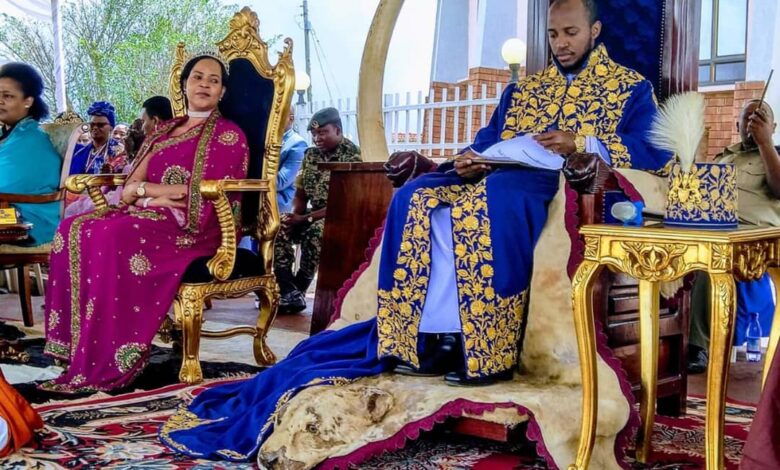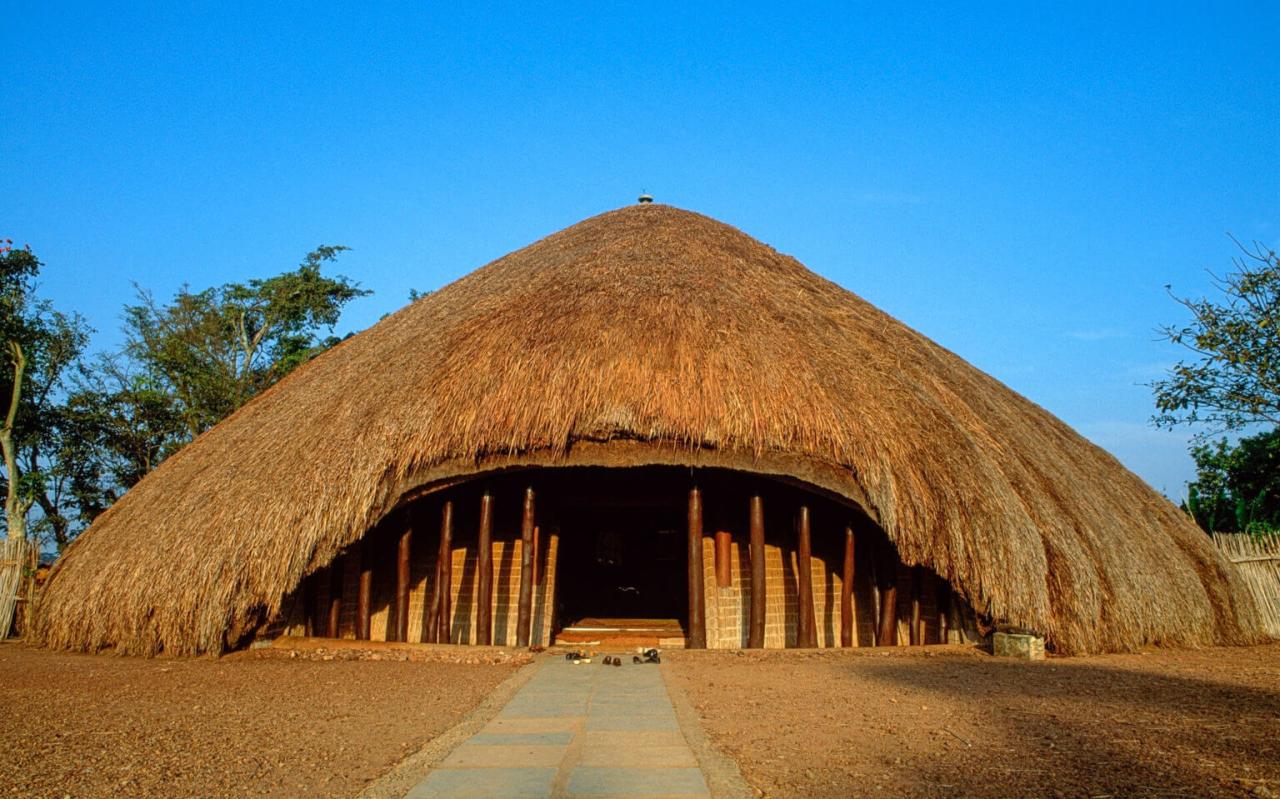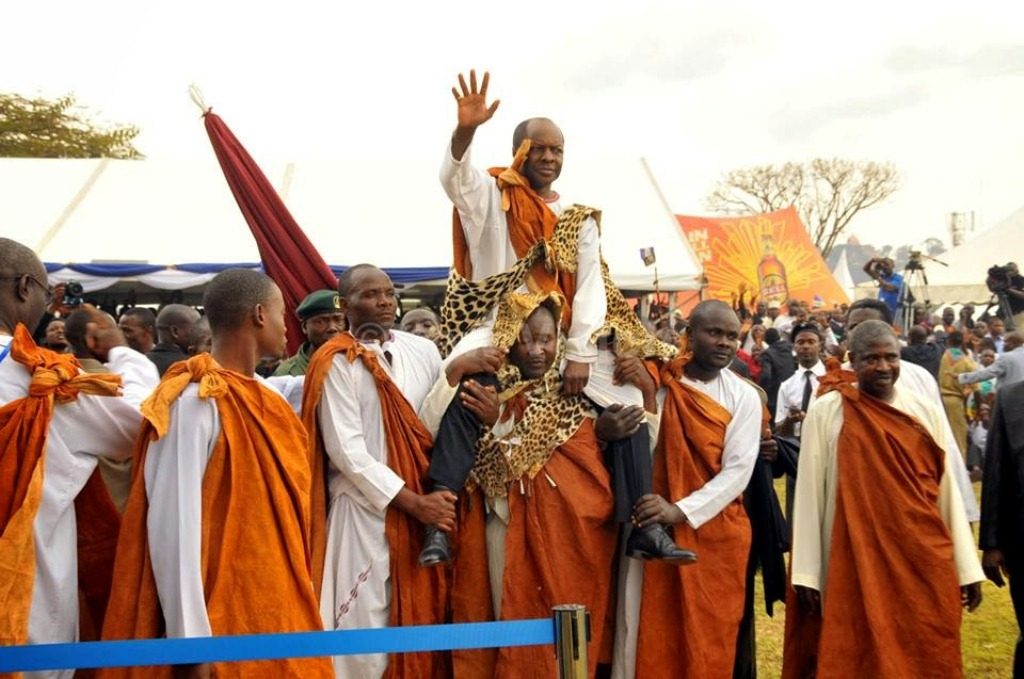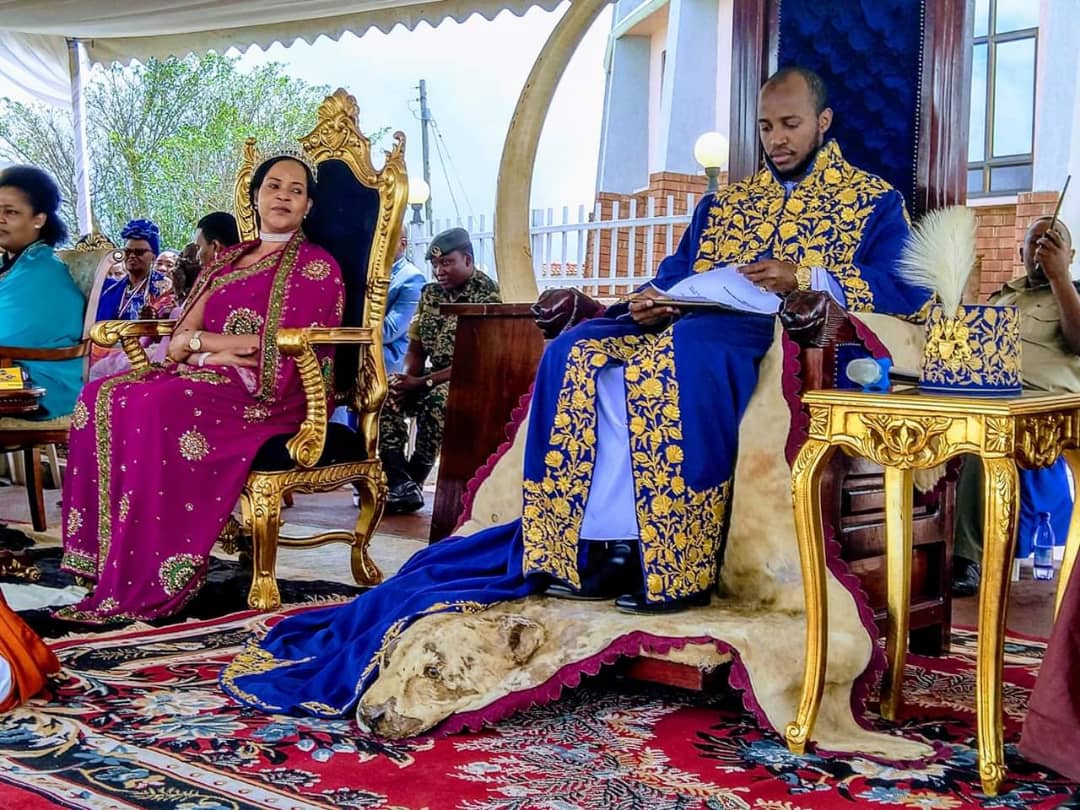
Ugandas Traditional Kingdom of Buganda: A State Within a State
Uganda s traditional kingdom of buganda a state within a state – Uganda’s Traditional Kingdom of Buganda: A State Within a State, is a fascinating example of a cultural and political entity existing within a modern nation. The Buganda Kingdom, with its rich history and unique governance model, has long played a significant role in shaping Uganda’s identity and landscape.
From its origins as a powerful pre-colonial kingdom to its complex relationship with the modern Ugandan state, Buganda continues to hold a unique place in the country’s narrative.
This blog post delves into the fascinating history, political structure, cultural significance, and socioeconomic impact of the Buganda Kingdom. We’ll explore the challenges and opportunities it faces in the 21st century, examining its ability to adapt and thrive in a rapidly changing world.
We’ll also look at the kingdom’s relationship with the Ugandan government, analyzing the complex dynamics of a “state within a state” and its implications for both entities.
The Buganda Kingdom’s Relationship with the Ugandan State: Uganda S Traditional Kingdom Of Buganda A State Within A State

The Buganda Kingdom, with its rich history and cultural significance, exists within the modern state of Uganda, creating a unique dynamic that has shaped the country’s political landscape. The relationship between the Buganda Kingdom and the Ugandan government has been characterized by both cooperation and tension, evolving over time as both entities navigate their respective roles and interests.
The Current Relationship
The current relationship between the Buganda Kingdom and the Ugandan government is a complex one, marked by periods of cooperation and conflict. The two entities have a shared history, with the Buganda Kingdom playing a significant role in the formation of Uganda as a nation.
However, the kingdom’s autonomy and influence have been a source of tension, particularly during the early years of Uganda’s independence.The Ugandan government recognizes the Buganda Kingdom’s cultural and historical significance and has granted it some degree of autonomy in managing its internal affairs.
The kingdom has its own government, led by the Kabaka (king), who is responsible for matters such as land administration, education, and cultural preservation. The Buganda government has its own legislative body, the Lukiiko, which acts as a parliament.Despite this autonomy, the relationship between the two entities remains delicate.
It’s fascinating to see how Uganda’s traditional kingdom of Buganda operates as a “state within a state,” with its own parliament, courts, and cultural institutions. It’s a stark contrast to the news coming out of Turkey, where turkey opens first major trial into earthquake deaths following the devastating earthquakes.
The trials highlight the importance of accountability and transparency in times of crisis, a lesson that could be applied to governance in Buganda as well.
The Ugandan government has at times sought to assert greater control over the kingdom, leading to periods of tension and conflict. The Buganda Kingdom, on the other hand, has sought to maintain its autonomy and influence, advocating for greater devolution of power and resources.
Challenges and Opportunities of a “State within a State”
The concept of a “state within a state” presents both challenges and opportunities. The Buganda Kingdom’s autonomy can be seen as a positive development, allowing for the preservation of its unique culture and traditions. It can also foster a sense of local ownership and empowerment, promoting development and economic growth at the local level.
Uganda’s traditional kingdom of Buganda, a state within a state, is a fascinating example of cultural preservation and political autonomy. It’s a reminder that unique traditions and relationships can exist within larger structures, much like the special bond Novak Djokovic has cultivated with a particular tree in Melbourne, as detailed in this article: djokovic s 15 year special relationship with melbourne tree.
Buganda’s unique position within Uganda serves as a reminder that even in the face of modernization, traditions can endure and thrive.
However, the existence of a powerful and influential kingdom within a national state can also lead to tensions and conflicts, particularly if there are disagreements over the distribution of power and resources.
Historical and Contemporary Tensions and Points of Cooperation, Uganda s traditional kingdom of buganda a state within a state
The historical relationship between the Buganda Kingdom and the Ugandan state has been marked by both cooperation and tension. In the early years of Uganda’s independence, the Buganda Kingdom sought greater autonomy, leading to conflicts with the central government. The 1966 crisis, which saw the Kabaka deposed and the kingdom’s autonomy curtailed, is a prime example of this tension.Despite these historical tensions, there have also been periods of cooperation.
The Buganda Kingdom has played a role in national development initiatives, particularly in the areas of education and healthcare. The kingdom’s cultural influence has also been instrumental in fostering national unity and promoting cultural diversity.In contemporary Uganda, the relationship between the Buganda Kingdom and the Ugandan government is characterized by a cautious balance between cooperation and competition.
Uganda’s traditional kingdom of Buganda, a state within a state, has a rich history and culture. While the country’s modern government focuses on agricultural development, the Bugandan kingdom maintains its own administrative structure, reflecting a fascinating duality. This reminds me of how Saudi Arabia, saudi says value of mineral resources has nearly doubled , is diversifying its economy away from oil, looking to its vast mineral wealth for future prosperity.
Both Buganda and Saudi Arabia show that traditional institutions and modern aspirations can coexist, leading to unique and interesting developments.
The two entities have worked together on various initiatives, particularly in the areas of development and social welfare. However, there are also ongoing tensions, particularly over the issue of land ownership and the kingdom’s autonomy.The Buganda Kingdom’s relationship with the Ugandan government is a complex and evolving one.
While the two entities have a shared history and a common interest in the development of Uganda, their relationship is also marked by challenges and tensions. The concept of a “state within a state” presents both opportunities and challenges, requiring careful management and dialogue to ensure a harmonious relationship.
The Buganda Kingdom’s Future

The Buganda Kingdom, with its rich history and cultural significance, faces a complex future in the 21st century. Navigating the challenges of globalization, rapid urbanization, and a changing political landscape will require adaptability and innovation. However, the kingdom also possesses inherent strengths that can propel it towards a prosperous future.
The Buganda Kingdom’s Ability to Adapt
The Buganda Kingdom has a proven ability to adapt to changing circumstances. Throughout its history, it has weathered numerous political and social upheavals. This resilience stems from its strong cultural identity, which serves as a unifying force for its people.
The kingdom has successfully integrated modern institutions while preserving its traditional values, a testament to its adaptability.
- Economic Development:The Buganda Kingdom has actively promoted economic development within its territory, encouraging investment in agriculture, tourism, and other sectors. This proactive approach has contributed to the kingdom’s economic growth and the well-being of its people.
- Education and Healthcare:The kingdom has invested in education and healthcare infrastructure, recognizing their crucial role in human development. This commitment has led to improved access to quality education and healthcare services for the Buganda population.
- Cultural Preservation:The Buganda Kingdom has been instrumental in preserving its rich cultural heritage, promoting traditional arts, music, and language. This effort not only safeguards the kingdom’s identity but also attracts tourists and fosters cultural pride among its people.
The Buganda Kingdom’s Role in Shaping the Future of Uganda
The Buganda Kingdom plays a vital role in shaping the future of Uganda. As a major cultural and economic force, it influences national development and contributes to the country’s overall progress.
- Political Influence:The Buganda Kingdom wields significant political influence in Uganda. The Kabaka, as the kingdom’s leader, holds a prominent position in the country’s political landscape. The kingdom’s political engagement helps shape national policies and advocate for the interests of its people.
- Economic Growth:The Buganda Kingdom’s economic activities contribute significantly to Uganda’s national economy. The kingdom’s focus on agriculture, tourism, and other sectors fosters economic growth and creates employment opportunities.
- Social Development:The Buganda Kingdom’s commitment to social development benefits not only its own people but also the wider Ugandan population. The kingdom’s initiatives in education, healthcare, and cultural preservation contribute to national progress.
Final Conclusion

The Buganda Kingdom stands as a testament to the enduring power of tradition and culture in a modernizing world. Its unique governance model, rich cultural heritage, and significant socioeconomic impact continue to shape the lives of its people and the future of Uganda.
As we move forward, it will be crucial to understand and appreciate the complexities of this relationship, fostering a dialogue that respects both the kingdom’s historical legacy and the evolving needs of the nation as a whole.

